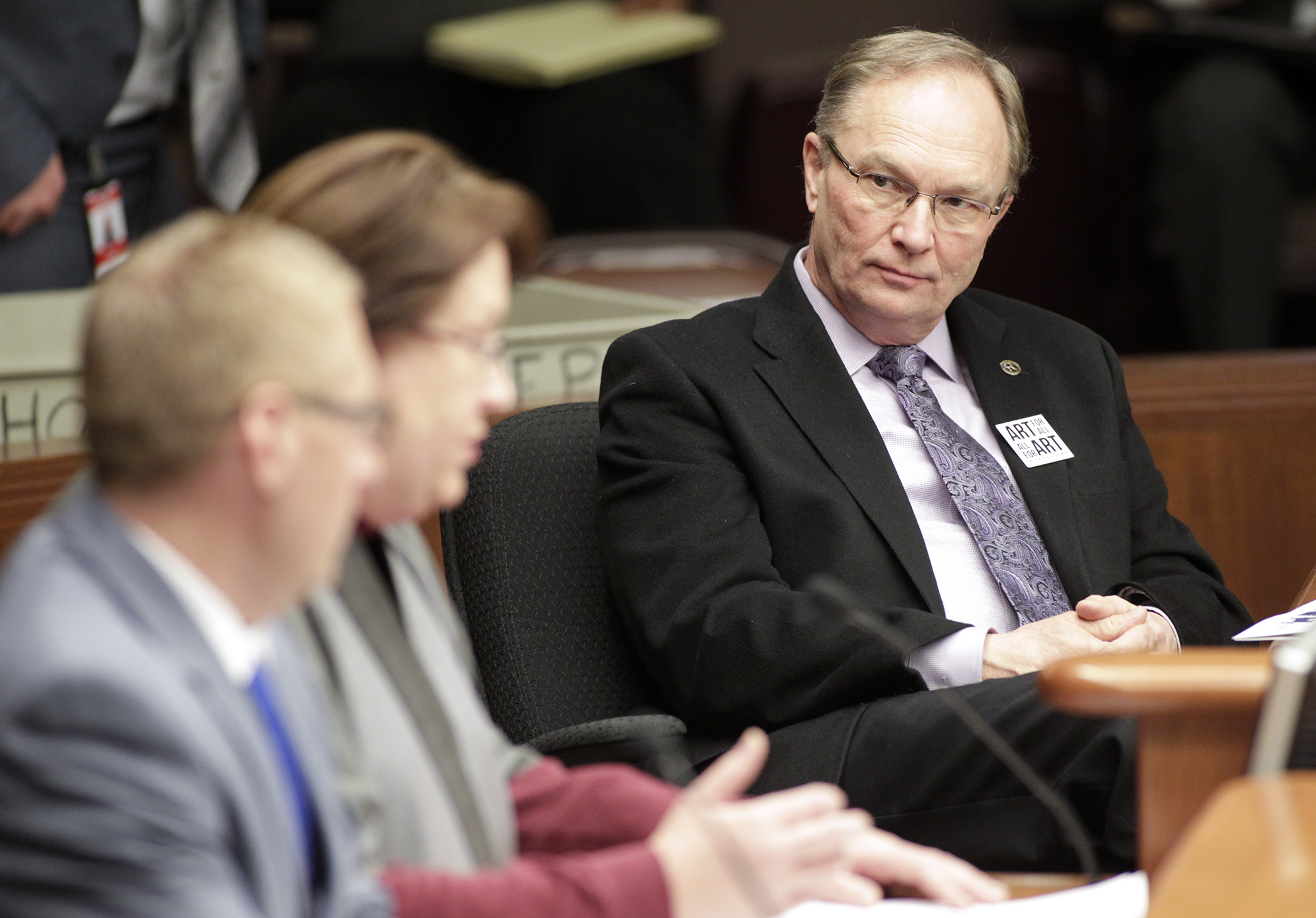Grant cap could boost smaller local bridge projects, hurt major urban ones

Some of the state’s biggest local bridges in need of repair or replacement could be largely shut out of an important source of funding under a bill approved Tuesday by the House Transportation Finance Committee.
Rep. Paul Torkelson (R-Hanska), who chairs the committee, sponsors HF1617 that proposes to set a $7 million cap on grants to projects from the Department of Transportation’s Local Bridge Replacement and Rehabilitation program.
Torkelson said the proposed cap would focus the program back where he said it belongs: on smaller bridge projects. Large, multi-million dollar bridge projects — those he called “budget-busting bridges” — eat up far too many of the state dollars disbursed through the local bridge program and leave too little for smaller projects across the state.
“Very large bridges should come forward as individual projects,” Torkelson said.
OK’d in the committee, HF1617 now heads to the House Capital Investment Committee. There is no Senate companion.
While the bill could free up more money for smaller local bridge projects across the state, officials from the state’s two largest cities told the committee it would mean major projects wouldn’t get completed in theirs.
Minneapolis and St. Paul officials testified that the local bridge fund is critical to their plans to make badly needed fixes to big, busy and expensive bridges in their cities that, because they are on local roads, don’t qualify for state highway funds.
Two bridges cited during the hearing were the 10th Avenue bridge in Minneapolis and the Kellogg Boulevard-Third Street Bridge in St. Paul. Both bridges carry roughly 10,000 vehicles per day and, officials said, they are difficult to piece together funding for because of their size and status as local bridges.
A $7 million cap would make those projects next-to-impossible to do without asking for state officials to earmark transportation dollars to complete them.
“We will not be able to fund some of our main bridge projects in St. Paul if [the bill passes],” Bev Farraher, operations manager for the city of St. Paul, told the committee.
Representatives of local governments in rural Minnesota, however, praised the bill.
For communities with smaller bridges, including those that may be used for primarily agricultural purposes, “It’s just hard to compete with a mega-bridge in the metropolitan area,” said former Sen. Steve Novak, representing the Minnesota Inter-County Association.
He said his organization supports the bill and shares Torkelson’s view that smaller projects are often left fighting for funding scraps after larger, more expensive bridges receive grant funds.
Related Articles
Search Session Daily
Advanced Search OptionsPriority Dailies
Ways and Means Committee OKs proposed $512 million supplemental budget on party-line vote
By Mike Cook Meeting more needs or fiscal irresponsibility is one way to sum up the differences among the two parties on a supplemental spending package a year after a $72 billion state budg...
Meeting more needs or fiscal irresponsibility is one way to sum up the differences among the two parties on a supplemental spending package a year after a $72 billion state budg...
Minnesota’s projected budget surplus balloons to $3.7 billion, but fiscal pressure still looms
By Rob Hubbard Just as Minnesota has experienced a warmer winter than usual, so has the state’s budget outlook warmed over the past few months.
On Thursday, Minnesota Management and Budget...
Just as Minnesota has experienced a warmer winter than usual, so has the state’s budget outlook warmed over the past few months.
On Thursday, Minnesota Management and Budget...